†Preserving Potable Water: A Case of Steel Pipe Repair in a Service Reservoir Water is one of the most essential resources for life, and in the United States, it’s delivered through an intricate network of treatment plants, pipelines, and storage facilities. After water is treated and transported, it often ends up in service reservoirs, which play a key role in maintaining consistent pressure and supply throughout the distribution system. These reservoirs can be above ground, like water towers, or below ground, especially in hilly or mountainous regions. Over time, the steel pipes and tanks inside these reservoirs are exposed to constant moisture, leading to corrosion. This not only weakens the structure but can also result in leaks, water loss, and even contamination of the potable water supply. In some cases, the damage can be severe, requiring urgent and effective repair solutions that don’t compromise water safety. In the southwestern U.S., an underground service reservoir faced this very challenge. Three outlet pipes were showing signs of pitting and leakage, with about 5% of the total piping affected by corrosion. The issue stemmed from prolonged exposure to water and oxygen, which had weakened the steel along the edges of the concrete tank. The repair needed to meet strict standards—specifically, NSF-61 certification—to ensure the water remained safe for consumption. And because the reservoir could only be taken offline for a short period, the job had to be done quickly and efficiently. To address the problem, HJ3’s CarbonSeal Steel Pipe Repair System was chosen. This system is UL-approved and meets ANSI/NSF Standard 61, making it ideal for use with potable water. It provided a fast, durable, and long-lasting solution that fit within the tight timeframe. The process began with surface preparation using abrasive blasting with NSF-61 approved media. Then, each pipe was patched, primed, wrapped with carbon fiber, and coated with a chemical-resistant top layer. The entire repair was completed in just one day, restoring the pipes to their original strength and ensuring the integrity of the water supply. HJ3’s CarbonSeal system proved to be a reliable and efficient solution for this critical infrastructure project. For more information on HJ3’s NSF-61 compliant systems, including the CarbonSeal steel pipe repair solution, feel free to reach out via email or call us at 877-303-0453. ††â€
The great advantage of
using the PTA process is the capability of producing thin edge surfaces. While the
hard facing provides the premier wear-resistant surface capable of working in
all applicable service conditions at either ambient or elevated temperatures.
Together with the very
low dilution (approx. 5 %) and the minimal distortion risk, the process is
ideal for applications on wear-plates (wear-resistant composite sheets) or
parts such as Fan Blades.
Besides
Tungsten Carbide Coated Plates, HP Wear Resistant Group offers various products
of wear plates namely Cr-Carbide Weld Clad Plates, Smooth Surface CCO plate,
Heat Treated Wear Plates (AR Plate or Q&T Steel), Casting Plates in various
grade and multiple size options.
HP
Tungsten Carbide Coated Plates are made out of unique hard facing process
combined with the specially formulated hard facing alloys produces the harder,
tougher and better wear resistant plates.
Due to its excellent properties, HP Wear Plates work for
long-lasting service life and superb performance, which are well applied to the
industries like Cement Plant, Steel Mill,
Mining Site, Power Generation, Construction where need combat with abrasion.
Laboratory and field tests have shown that
HP Wear Plates will outwear conventional Wear Plate with single or multiple
hard facing layers by up to six times,
In the following areas, HP Wear Plate has
no equal:
Industrial Applications
Mining, Cement and Brick
Dozer Moldboards. Shovel
Liners. Chute Liners. Dragline Buckets. Classifier Screens. Mine and Quarry
Skips. Pug Mill Paddles. Compactor Rollers. Bucket Lips. Dipper Buckets. Ore
Cars. Ore Scrapers. Dump Truck Body Beds. Loaders and High Lifts. Skid
Plates.
Steel Mills
Blast Furnace. Coke Oven and
Sinter Plants. Skip Car Liners. Sinter Breakers. Ore Bucket Liners. Receiving
Hoppers. Grizzly Bars. Feeder Bins. Conveyor Buckets. Chutes. Spiked Roll
Crushers.
Power Plants
Pulveriser Mills. Cyclones.
Receiving Hoppers. Liner Plates. Coal Handling Systems. Coal Buckets.
Conveyors. Fan Blades and Housings.
General Industry
Grain Chutes. Rub Bars for
Conveyor Chains. Agitator Paddles. Dredge Pump Liners. Grit Blast Liners.
Centrifugal Pump Liners. Mower Skid Plates.
The mechanically strong
interface between the alloy and steel backing is clearly depicted in this
cross sectional photograph of Wear Plate.
Tungsten Carbide Wear Plate,Cement Vertial Mill Wear Plate,Tungsten Carbide Welded Wear Plate,Overlaying Wear Plate HuiFeng Wear Resistant Group , https://www.hpwearsolution.com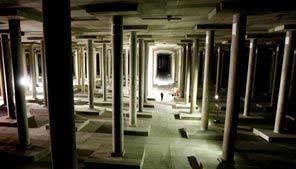
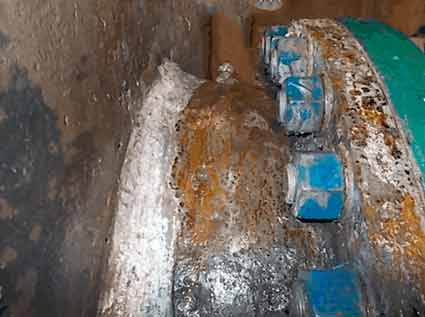
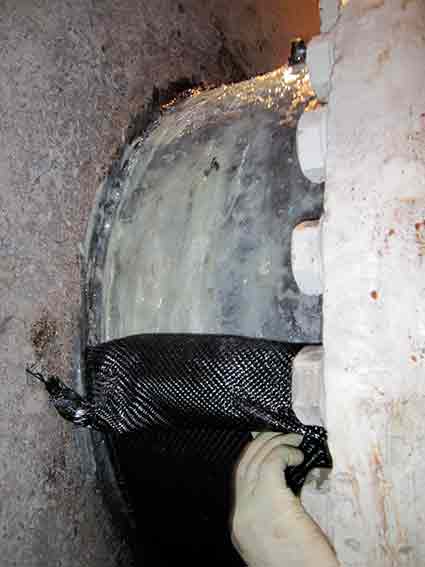
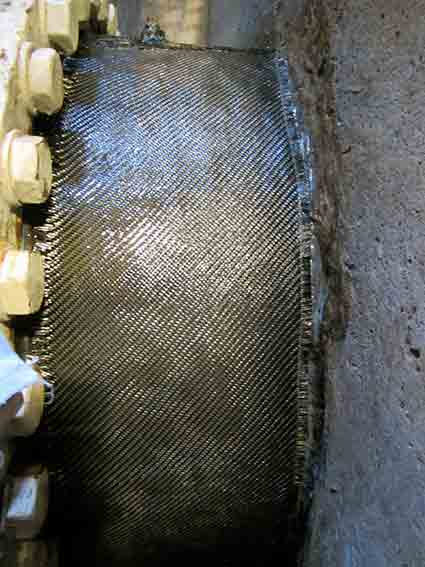
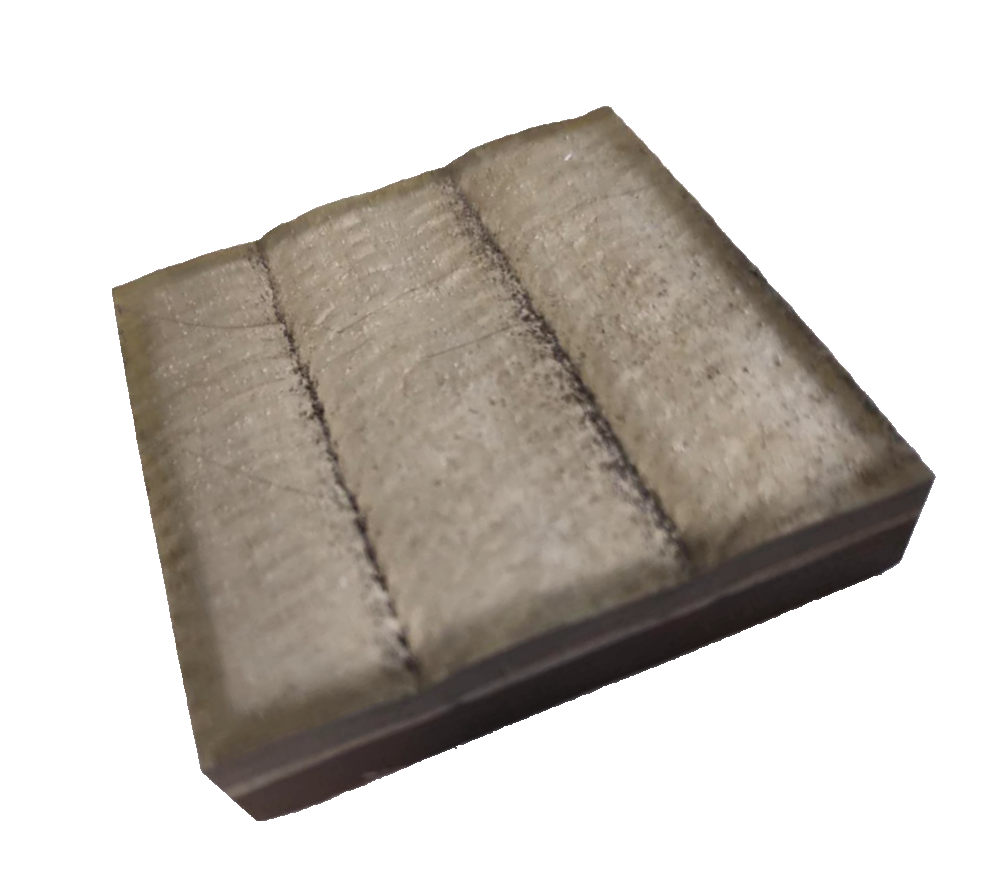
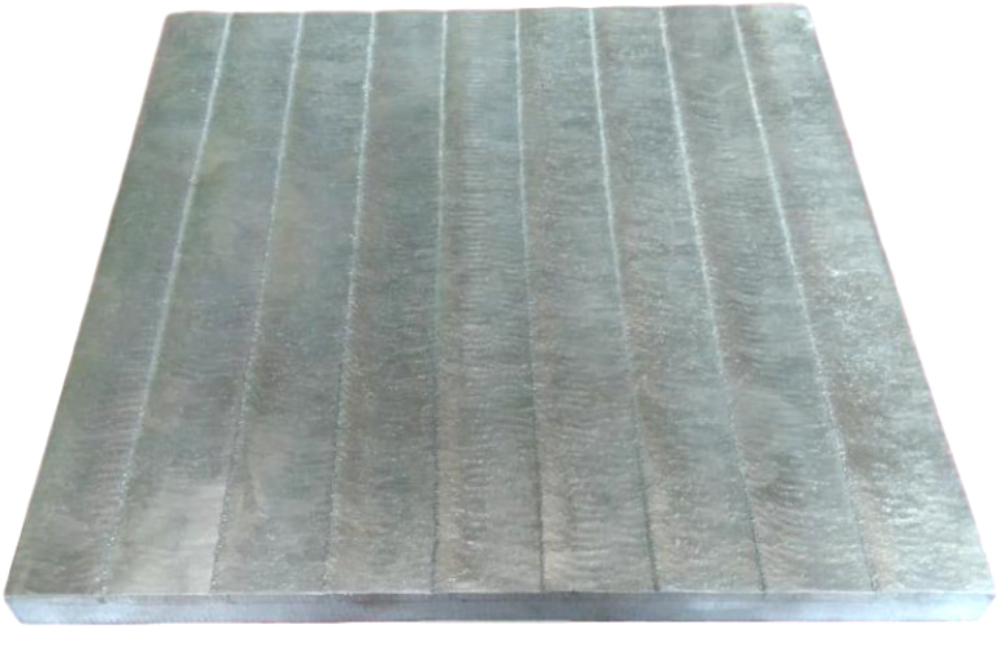
Water Reservoir Outlet Pipes Repaired with Carbon Fiber